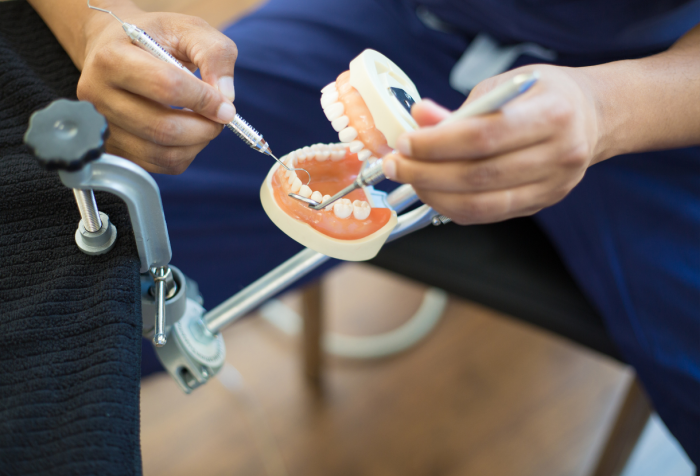Dental implants are artificial tooth roots made from materials like titanium or titanium alloys. These implants are surgically placed into the jawbone beneath the gum line, providing a sturdy foundation for replacement teeth or dental prostheses.
Types of Dental Implants:
- Endosteal Implants: These are the most common implants, directly placed into the jawbone.
- Subperiosteal Implants: Positioned on the bone rather than within it, ideal for patients with insufficient bone height.
The Dental Implant Procedure:
- Evaluation and Planning: The initial assessment involves X-rays, impressions, and a comprehensive evaluation by a dentist or oral surgeon.
- Implant Placement: The dental implant is surgically inserted into the jawbone. A healing period allows the bone to fuse with the implant, a process called osseointegration.
- Abutment Placement: Once integrated, an abutment is attached to the implant, serving as a connector for the artificial tooth.
- Placement of Artificial Tooth: A customized crown, bridge, or denture is mounted on the abutment, completing the restoration.
Advantages of Dental Implants:
- Natural Appearance: Implants mimic the look and feel of natural teeth, enhancing aesthetics.
- Durability: With proper care, implants can last a lifetime.
- Improved Functionality: They restore chewing ability and speech, offering comfort and functionality superior to other replacement options.
- Preservation of Bone Structure: Implants help prevent bone loss and maintain the jawbone’s integrity.
Candidates for Dental Implants:
- Good oral health and sufficient bone density are essential for ideal candidates.
- In cases of inadequate bone, bone grafting might be required to support the implant.
- Healthy gums and commitment to oral hygiene are crucial for implant success.
Aftercare and Maintenance:
- Regular oral hygiene practices, including brushing, flossing, and routine dental check-ups, are vital for implant maintenance.
- Avoiding habits like smoking contributes to the success of dental implants.
Dental implants offer a durable, natural-looking solution for replacing missing teeth. It’s crucial to consult a qualified dentist or oral surgeon to determine the suitability of implants based on individual oral health and needs.
